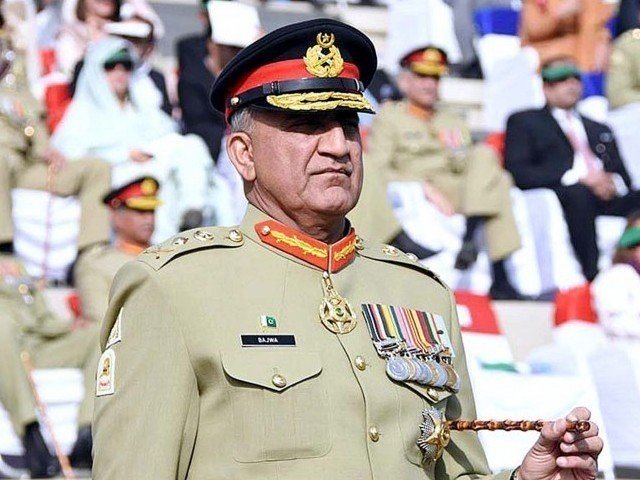
The delay wasn’t intentional.
The Express Tribune has learnt in background interviews with politicians and lawyers that the government first tried to reach out to the opposition parties – though not directly.
The government went for the challenge after it failed to muster ‘desirable support’ from the major opposition parties on proposed legislation on the apex court direction, sources said. Officials in the two main opposition parties – the PPP and the PML-N – confirmed that the government had approached them through intermediaries.
The PML-N is divided on the issue. The younger Sharif appears to be flexible, but the older Sharif has a different opinion. Nawaz Sharif, though no longer president of the party, but still pulling the strings, agrees to lend support to the proposed legislation, but with a caveat.
Nawaz is amenable to supporting government legislation to fix the army chief’s tenure but he is noncommittal on giving a legal cover to the reappointment/extension of an army chief.
A senior legal wizard of the PML-N said that most party lawmakers believe lending support to the government on the issue could potentially harm the narrative the party has espoused since the disqualification of Nawaz Sharif as prime minister on July 28, 2017.
He went as far as to allege that the government stage-managed the arrest of Ahsan Iqbal and denied Maryam Nawaz permission to fly abroad after its failure to bend the PML-N and secure ‘unconditional support’ for the proposed legislation.
PTI govt fears ‘irreparable loss’if SC doesn’t order in-camera hearing
The PPP, on the other hand, set certain preconditions for supporting the proposed legislation, according to sources. Concurrent with the legislation on the army chief’s extension, the party proposed legislation on other issues, especially on the NAB law, the appointment of chief election commissioner, and elections reforms.
A senior PTI lawyer said the army chief’s tenure should be the prerogative of the president of Pakistan.
Legal experts are unimpressed with the government decided to go down the review route, for more than one reason.
Govt challenges SC verdict on army chief’s extension
Firstly, according to them, the apex court gave the verdict with the consent of the Attorney General for Pakistan (AGP) Anwar Mansoor Khan who had undertaken appropriate legislation on the matter.
Interestingly, the government, in its review petition, did not give an explanation for approaching the SC after the AGP’s undertaking.
Secondly, under the Supreme Court Rules, the bench that heard the main case will hear the review petition, which has a limited scope. A huge percentage of such review petitions are dismissed unless a petitioner highlights some “glaring error” in the judgment.
Thirdly, the role of the superior bars is significant in this matter. The superior bars are opposed to the army chief’s extension. If the court accepts the review petition, then there might be the reaction from the lawyers' community.
Fourthly, legal experts believe the recent “malicious campaign” against the judiciary, especially following the Musharraf treason case verdict, might influence the government’s case in the apex court.
It has been learnt that despite their failure on legal matters related to the establishment, the AGP and the law minister would again be representing the government in the apex court to get relief. Some members in the PTI’s inner sanctum have blamed the duo for the current legal woes of the government.
The government has requested the top court to form a five-judge larger bench to hear its review petition. Listing reasons, the government contends that the issue is vital for democracy and security and the judgment suffers from glaring errors apparent on the very face of the record. It also states that provisions of Articles 243 and 240 of the Constitution have been completely misconstrued.
The government has referred to the 2013 judges’ pension case ruling wherein it is held that the apex court has very wide powers in review jurisdiction to rectify any incorrect judgment or precedent. It has also referred to the Houbara Bustard case wherein the judgment was reviewed by a larger bench.
The application further states that in order to complete justice under Article 187 of the Constitution, a larger bench comprising at least five judges be constituted to hear the review petition as one judge, ex-CJP Asif Saeed Khosa who decided the case, has already retired.

1725612926-0/Tribune-Pic-(8)1725612926-0-165x106.webp)















COMMENTS
Comments are moderated and generally will be posted if they are on-topic and not abusive.
For more information, please see our Comments FAQ